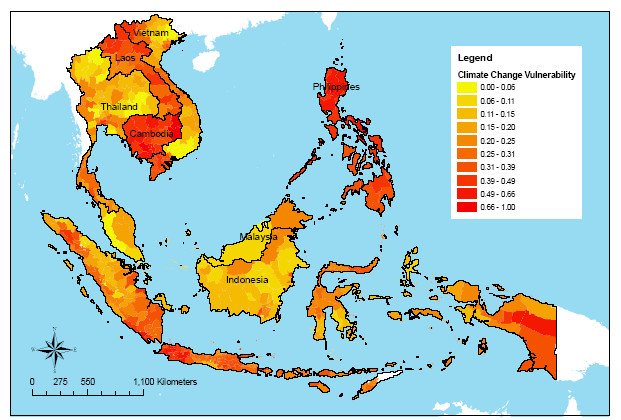A journey through climate change education policy in Indonesia
Published in Social Sciences, Sustainability, and Education

The genesis of the study
The idea for this study stemmed from the critical need to understand how CCE is being integrated into formal education systems, particularly in developing countries like Indonesia. As the world's largest archipelago and one of the top contributors to global greenhouse gas emissions, Indonesia presents a unique case with its diverse geography and socio-economic challenges.

Methodological approach
To comprehensively analyse the state of CCE policy in Indonesia, I employed thematic analysis on twenty climate change policy texts, twelve K-12 education policy texts, and seventeen expert interview transcripts. This multi-faceted approach allowed me to uncover the complex dynamics and interactions within Indonesia's climate change and educational policies.
Key findings
The analysis revealed four key themes:
-
Marginalisation of CCE: Despite the recognised importance of CCE, it remains marginalised in both climate change and education policies. The term 'education' appears infrequently, and when it does, it often refers to capacity building focused on government officials and private sectors rather than formal education initiatives involving children and youth.
-
Lack of synergies: There is a significant lack of coordination and synergy between climate change policy and education policy. This is evident by the dissimilar definitions and purposes of CCE by both policy domains. This disjointed approach seems to hinder the effective implementation of CCE.
-
Predominant economic values: Economic considerations dominate policy discourse, often overshadowing the educational and environmental aspects of CCE. Prioritising economic growth and national development often leads to a downplaying of environmental ambitions, potentially contributing to the marginalisation of CCE within these policy domains.
-
Optimistic future outlook: Despite the challenges, there is a prevailing sense of optimism among stakeholders about the future of CCE in Indonesia. This optimism is driven by the new post-modernistic national curriculum and pre-existing environmental education initiatives, such as Green School programme.

Implications and future directions
The findings of this study highlight critical areas for improvement in the integration of CCE within Indonesia's policy framework. There is a pressing need for coordinated policies that align climate change and education objectives. Additionally, the study underscores the importance of stakeholder engagement and the inclusion of socio-emotional and behavioural learning dimensions in CCE in addition to the already predominant cognitive learning dimension.
Personal reflections
Conducting this study has been a transformative experience. It has deepened my understanding of the policy landscape and the complexities involved in integrating CCE into formal education. I am hopeful that this research will contribute to the ongoing dialogue and efforts to improve CCE not only in Indonesia but globally.
Conclusion
"Climate Change Education in Indonesia's Formal Education: A Policy Analysis" is a call to action for policymakers, educators, and researchers. By addressing the identified gaps and leveraging opportunities for improvement, we can foster a more informed and proactive generation equipped with knowledge, attitude, values, and skills to tackle the challenges of climate change.
Follow the Topic
-
npj Climate Action

This journal considers research that explores all aspects of mitigating the hazardous effects of global climate change.
What are SDG Topics?
An introduction to Sustainable Development Goals (SDGs) Topics and their role in highlighting sustainable development research.
Continue reading announcementRelated Collections
With Collections, you can get published faster and increase your visibility.
Climate Activism: Bridging Science, Advocacy, and Public Engagement
Publishing Model: Open Access
Deadline: May 28, 2026
Green Skills for a Low-Carbon Future
Publishing Model: Open Access
Deadline: Jun 11, 2026





Please sign in or register for FREE
If you are a registered user on Research Communities by Springer Nature, please sign in